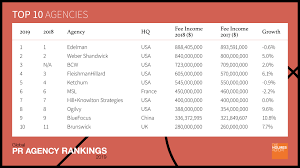Influencers: The Power of Digital Influence
In today’s digital age, the rise of social media has given birth to a new breed of celebrities known as influencers. These individuals have amassed a large following on platforms such as Instagram, YouTube, and TikTok, and have become powerful voices in shaping consumer trends and opinions. But what exactly is an influencer, and why are they so influential?
An influencer is someone who has established credibility in a specific niche or industry and has the ability to persuade their audience through their authenticity, expertise, or relatability. They often create content that resonates with their followers, whether it’s fashion, beauty, fitness, travel, or any other topic that aligns with their personal brand.
What sets influencers apart from traditional celebrities is their direct connection with their audience. They engage with their followers on a personal level by sharing insights into their daily lives and providing recommendations on products or services they genuinely enjoy. This level of authenticity fosters trust and loyalty among their followers.
The influence wielded by these digital tastemakers has not gone unnoticed by brands and marketers. They recognize the power of influencers in reaching highly engaged audiences who are more likely to trust recommendations from someone they admire rather than traditional advertising methods. As a result, influencer marketing has become an integral part of many businesses’ marketing strategies.
Collaborating with influencers allows brands to tap into their existing fan base and leverage their influence to promote products or services. By partnering with the right influencer whose values align with the brand’s image, companies can effectively reach a targeted audience while benefiting from the credibility and trust associated with the influencer.
Moreover, influencers offer a unique opportunity for brands to create authentic content that seamlessly integrates into an influencer’s feed or video. This native advertising approach feels less intrusive compared to traditional advertisements and resonates better with consumers who are increasingly ad-savvy.
However, it’s important to note that not all influencers are created equal. The size of an influencer’s following does not necessarily equate to their effectiveness in driving results for brands. Micro-influencers, who have a smaller but highly engaged audience, can often yield better results due to their niche expertise and stronger personal connections with their followers.
Influencer marketing also comes with its challenges. As the industry has grown, so has the issue of fake followers and engagement. Some influencers resort to purchasing followers or engagement metrics, which can mislead brands into thinking they are reaching a larger audience than they actually are. To combat this, brands must conduct thorough research and vetting processes when selecting influencers to work with.
In conclusion, influencers have become a force to be reckoned with in the digital landscape. Their ability to connect with their audience on a personal level and shape consumer trends has transformed the marketing industry. By harnessing the power of influencers effectively, brands can tap into new audiences, build trust, and elevate their brand awareness in an authentic way. As influencer marketing continues to evolve, it will undoubtedly remain a powerful tool for businesses looking to make an impact in the digital realm.
7 Essential Tips for Effective Influencer Collaboration
- Do your research – Find out as much as you can about the influencer and their audience before approaching them.
- Have a clear goal in mind – Know what you want to achieve from working with the influencer, and make sure they understand it too.
- Set realistic expectations – Don’t expect miracles overnight, but be realistic about the expected results and timeframe for success.
- Offer value – Make sure that the influencer is getting something valuable out of the partnership too, such as money or free products/services.
- Be transparent – Let the influencer know exactly what is expected of them in terms of content creation, promotion and engagement with their audience on behalf of your brand/company.
- Monitor progress – Keep track of how successful your campaign has been by monitoring key metrics such as reach, engagement and conversions over time so that you can adjust accordingly if needed.
- Show appreciation – Acknowledge their hard work by sending thank-you notes or gifts to let them know that you appreciate their efforts in helping promote your brand/company online!
Do your research – Find out as much as you can about the influencer and their audience before approaching them.
Do Your Research: The Key to Successful Influencer Collaborations
In the world of influencer marketing, doing your research is an essential step in ensuring a successful collaboration. Before approaching an influencer, it’s crucial to gather as much information as possible about both the influencer and their audience. This valuable insight will help you make informed decisions and maximize the impact of your partnership.
Firstly, take the time to thoroughly understand the influencer themselves. Look into their content, style, and tone to ensure that their brand aligns with yours. Consider their values, personality, and overall image—these aspects should complement your brand’s identity and resonate with your target audience.
Next, delve into the influencer’s audience demographics. Who are their followers? What age group do they belong to? Are they predominantly male or female? Understanding these details will help you determine if the influencer’s audience matches your target market. It’s important to remember that a large following doesn’t always equate to effective reach; engagement and relevance are key factors.
Analyzing engagement metrics is another vital aspect of research. Look at how engaged the influencer’s audience is by examining likes, comments, shares, and other interactions on their posts. High engagement indicates an active and dedicated community that is more likely to respond positively to collaborations.
Additionally, consider the influencer’s previous brand partnerships. Assess whether they have promoted products or services similar to yours in the past. This can give you insights into how well-received such collaborations were and whether they resulted in measurable outcomes for previous brands.
When reaching out to influencers, demonstrate that you have done your research by referencing specific aspects of their content or mentioning previous collaborations that caught your attention. This personal touch shows genuine interest in working with them and helps establish a connection from the start.
By conducting thorough research on influencers and their audiences before approaching them, you increase your chances of finding an ideal match for your brand. This knowledge allows you to craft tailored collaboration proposals that resonate with the influencer and their followers, leading to more authentic and impactful partnerships.
In conclusion, doing your research is a vital tip for successful influencer collaborations. It enables you to identify influencers who align with your brand values, target the right audience, and create meaningful connections. With careful research, you can lay a solid foundation for fruitful partnerships that yield positive results for both your brand and the influencer.
Have a clear goal in mind – Know what you want to achieve from working with the influencer, and make sure they understand it too.
Have a Clear Goal in Mind: Maximizing Influencer Partnerships
In the fast-paced world of influencer marketing, having a clear goal in mind is crucial for success. When working with influencers, it’s essential to know what you want to achieve and communicate that vision effectively. This not only helps you stay focused but also ensures that the influencer understands your expectations and can deliver accordingly.
One of the primary reasons brands collaborate with influencers is to increase brand awareness. Whether you’re launching a new product or trying to reach a specific target audience, having a well-defined goal will guide your influencer selection process. Consider factors such as the influencer’s niche, audience demographics, and engagement levels to find the right match for your brand.
Another common objective when partnering with influencers is driving sales or conversions. If your primary goal is generating revenue, it’s important to communicate this clearly to the influencer. Discuss strategies such as discount codes, affiliate programs, or exclusive offers that can incentivize their followers to make a purchase. By aligning your goals and expectations from the start, you can work together towards achieving measurable results.
Building brand credibility and trust is another benefit of working with influencers. Their authentic content and personal recommendations hold significant weight among their followers. If your aim is to enhance brand reputation or establish thought leadership in your industry, ensure that the influencer understands this objective. Collaborate on content ideas that showcase your brand’s expertise or values while leveraging the influencer’s unique storytelling abilities.
Engagement and interaction are key metrics for success in influencer marketing. If fostering meaningful conversations with your target audience is a priority, make sure the influencer shares this goal. Encourage them to engage with their followers through comments, polls, or Q&A sessions related to your brand or product. This level of interaction not only boosts engagement but also creates a sense of community around your brand.
Remember that communication is key when working with influencers. Clearly articulate your expectations, desired outcomes, and any specific guidelines or requirements you may have. Be open to their creative input and ideas as well, as they know their audience best. By fostering a collaborative relationship based on mutual understanding, you can maximize the potential of your influencer partnerships.
In conclusion, having a clear goal in mind is essential for effective influencer marketing. It helps you stay focused, select the right influencers, and achieve measurable results. From increasing brand awareness to driving sales or enhancing credibility, clearly communicating your objectives to influencers sets the stage for a successful collaboration. So, before embarking on an influencer campaign, take the time to define your goals and ensure that both you and the influencer are aligned in working towards them.
Set realistic expectations – Don’t expect miracles overnight, but be realistic about the expected results and timeframe for success.
Setting Realistic Expectations: The Key to Influencer Marketing Success
In the fast-paced world of influencer marketing, it’s essential to set realistic expectations when embarking on a campaign. While influencers have the power to reach and engage with a wide audience, it’s important to remember that success doesn’t happen overnight. To make the most of your influencer collaborations, it’s crucial to have a clear understanding of what can be achieved and the timeframe required for success.
First and foremost, it’s vital to recognize that building brand awareness and establishing trust takes time. Influencers may have a dedicated following, but their audience needs time to familiarize themselves with your brand and develop trust in your products or services. Patience is key when it comes to influencer marketing; don’t expect miracles overnight.
When setting expectations for an influencer campaign, consider the specific goals you want to achieve. Are you aiming for increased brand awareness? Do you want to drive sales? Are you looking to boost engagement on social media? Each objective requires different strategies and may yield varying results.
It’s also important to align your expectations with the influencer’s audience demographics and engagement rates. Take into account factors such as their follower count, engagement metrics (likes, comments, shares), and the relevance of their content to your target audience. A smaller but highly engaged following can often deliver better results than a larger but less engaged one.
Furthermore, keep in mind that influencer marketing is not a one-size-fits-all solution. The effectiveness of an influencer campaign can vary depending on factors such as industry niche, target market, budget, and the quality of content produced. It’s crucial to tailor your approach based on these factors and set realistic goals accordingly.
Finally, be aware that building strong relationships with influencers takes time as well. It involves nurturing connections, understanding their creative process, and working collaboratively towards shared objectives. Building trust between your brand and the influencer is essential for a successful long-term partnership.
By setting realistic expectations, you set yourself up for success in influencer marketing. It’s important to remember that while influencers can be powerful advocates for your brand, they are not magicians who can instantly transform your business. By understanding the time and effort required to achieve results, you can develop a more strategic approach and make the most of your influencer collaborations. So, be patient, be realistic, and watch as your influencer campaigns gradually deliver the desired outcomes.
Offer value – Make sure that the influencer is getting something valuable out of the partnership too, such as money or free products/services.
Offer Value: The Key to Successful Influencer Partnerships
In the world of influencer marketing, it’s essential to recognize that collaborations should be mutually beneficial. When partnering with influencers, it’s crucial to offer them something of value in return for their endorsement. This can come in the form of monetary compensation or free products and services.
Influencers invest time and effort into building their personal brand and cultivating a loyal following. They create engaging content, interact with their audience, and maintain an authentic online presence. As a brand, it’s important to acknowledge their hard work and provide fair compensation for their efforts.
One way to offer value is through monetary compensation. Influencers dedicate significant time and resources to produce high-quality content that resonates with their audience. By compensating them for their work, brands show appreciation for the influencer’s contribution and recognize the value they bring in promoting products or services.
Another way to provide value is by offering free products or services. This allows influencers to experience what the brand has to offer firsthand, enabling them to provide genuine feedback and recommendations to their followers. By providing influencers with complimentary access or exclusive perks, brands can establish a sense of exclusivity and strengthen the partnership.
It’s important to note that offering value goes beyond just monetary compensation or freebies. Brands should also invest in building long-term relationships with influencers based on trust and mutual respect. This means maintaining open lines of communication, providing support when needed, and collaborating on campaigns that align with both parties’ goals.
By offering value in influencer partnerships, brands can unlock numerous benefits. Firstly, it encourages influencers to genuinely engage with the brand’s products or services rather than simply promoting them for financial gain. This authenticity resonates better with followers who appreciate honest recommendations from trusted sources.
Secondly, when influencers feel valued and appreciated by a brand, they are more likely to go above and beyond in promoting its offerings. They may create additional content, share their experiences on multiple platforms, or even become brand advocates in the long run. This amplifies the reach and impact of the partnership.
Lastly, by providing value, brands foster positive relationships with influencers, leading to potential future collaborations. Influencers are more likely to work with brands they have had a positive experience with and who have shown a genuine interest in their success. This opens the door for ongoing partnerships and increased brand exposure.
In conclusion, offering value is a fundamental aspect of successful influencer partnerships. By compensating influencers fairly and providing them with valuable experiences or products/services, brands can forge strong relationships built on trust and mutual benefit. These partnerships not only enhance brand visibility but also create authentic connections with audiences that drive real results.
Be transparent – Let the influencer know exactly what is expected of them in terms of content creation, promotion and engagement with their audience on behalf of your brand/company.
Be Transparent: The Key to Successful Influencer Partnerships
In the world of influencer marketing, transparency is paramount. When collaborating with influencers, it’s crucial to establish clear expectations and guidelines right from the start. By openly communicating what you expect from them in terms of content creation, promotion, and engagement with their audience on behalf of your brand or company, you lay the foundation for a successful partnership.
Transparency ensures that both parties are on the same page and working towards a shared goal. It allows influencers to understand your brand’s values, messaging, and objectives, enabling them to create content that aligns seamlessly with your brand identity. When influencers have a clear understanding of what is expected of them, they can deliver authentic and impactful content that resonates with their audience.
By explicitly discussing content creation guidelines, you can ensure that the influencer’s content reflects your brand’s style and tone. This includes aspects such as visual aesthetics, key messages, product placement, or any other specific requirements you may have. Providing detailed briefs or creative direction helps influencers tailor their content accordingly while staying true to their unique voice.
Promotion is another crucial aspect where transparency plays a vital role. Clearly communicate how you would like the influencer to promote your brand or product. This could involve mentioning your brand in captions or videos, sharing discount codes or affiliate links, conducting giveaways or contests – whatever aligns with your marketing strategy. By being transparent about promotional expectations, you empower influencers to create engaging content that effectively promotes your brand while maintaining authenticity.
Engagement is equally important when it comes to influencer partnerships. Discuss how you would like the influencer to interact with their audience regarding your brand or product. Encourage open dialogue by requesting genuine feedback and encouraging questions from followers. This helps foster trust between the influencer and their audience while giving valuable insights into consumer perceptions.
Transparency should extend beyond just expectations; it should also include compensation and legal considerations. Be upfront about the compensation structure, whether it’s monetary payment, free products, or a combination of both. Establish clear guidelines regarding disclosure requirements to ensure compliance with advertising regulations and ethical standards. This transparency builds trust and credibility among your target audience.
In summary, being transparent with influencers is crucial for building successful partnerships. By openly discussing expectations around content creation, promotion, engagement, compensation, and legal considerations, you establish a solid foundation for collaboration. Clear communication helps influencers create authentic content that resonates with their audience while promoting your brand effectively. Remember, transparency is the key to fostering trust and achieving long-term success in influencer marketing.
Monitor progress – Keep track of how successful your campaign has been by monitoring key metrics such as reach, engagement and conversions over time so that you can adjust accordingly if needed.
Monitoring Progress: The Key to Successful Influencer Campaigns
In the fast-paced world of influencer marketing, it’s crucial to keep a close eye on the progress of your campaigns. By monitoring key metrics such as reach, engagement, and conversions over time, you can gain valuable insights into the effectiveness of your strategies and make necessary adjustments along the way.
One of the advantages of influencer marketing is its measurability. Unlike traditional advertising methods, where it can be challenging to track results accurately, digital platforms provide us with a wealth of data that can help us evaluate campaign performance. By analysing these metrics, you can gauge how well your message is resonating with your target audience and whether your chosen influencers are delivering the desired impact.
Firstly, tracking reach allows you to understand how many people have been exposed to your campaign. This metric gives you an indication of the potential audience size and helps determine if your message is reaching a wide enough demographic. It’s essential to compare reach across different influencers and content formats to identify which strategies are most effective in expanding your brand’s visibility.
Engagement is another critical metric to monitor. It measures how actively your audience is interacting with the content created by influencers. High engagement rates indicate that followers are genuinely interested in what they see, as they like, comment, share, or save posts. Monitoring engagement not only helps you assess how well your campaign is resonating but also provides insights into what type of content generates the most interest and encourages meaningful interactions.
Lastly, conversions are a vital indicator of success for influencer campaigns. These could be actions such as website visits, sign-ups for newsletters or promotions redeemed. By tracking conversions over time, you can determine whether influencers are effectively driving their audience towards desired actions or purchases. This information allows you to assess ROI (return on investment) and make informed decisions about future collaborations.
Regularly monitoring these key metrics enables you to stay agile and adapt your strategies if needed. If you notice that a particular influencer is not generating the expected results, you can explore alternative partnerships or adjust the content strategy. Similarly, if certain types of content are performing exceptionally well, you can allocate more resources towards those approaches to maximize impact.
In conclusion, monitoring the progress of your influencer campaigns is essential for achieving success in the rapidly evolving world of digital marketing. By keeping a close eye on metrics such as reach, engagement, and conversions, you gain valuable insights into your campaign’s effectiveness and can make data-driven adjustments to optimize results. Remember, influencer marketing is not a one-size-fits-all approach; it requires continuous evaluation and adaptation to ensure you’re making the most of this powerful marketing tool.
Show Appreciation: The Key to Building Strong Relationships with Influencers
In the world of influencer marketing, building strong relationships with influencers is crucial for the success of your brand or company. These digital tastemakers invest their time and effort in promoting your products or services, so it’s important to show them that their hard work is valued and appreciated.
One effective way to demonstrate your appreciation is by sending thank-you notes or gifts to influencers who have collaborated with you. Taking the time to express your gratitude not only shows that you value their efforts but also helps foster a positive relationship built on mutual respect.
A simple thank-you note can go a long way in making an influencer feel acknowledged and valued. Personalize the message by mentioning specific campaigns they were involved in or highlighting the impact they had on your brand. This thoughtful gesture shows that you genuinely appreciate their contribution and are grateful for their support.
In addition to thank-you notes, sending small gifts can also leave a lasting impression on influencers. Consider items that align with their interests or reflect the values of your brand. It could be a personalized product from your company, a gift card to their favorite store, or something related to their niche that they would find useful or enjoyable.
By showing appreciation through these gestures, you not only strengthen your relationship with influencers but also encourage them to continue supporting your brand in the future. It creates a sense of loyalty and motivates them to go above and beyond when promoting your products or services.
Remember, influencers have choices when it comes to collaborations. They receive numerous partnership offers daily, so standing out by showing genuine appreciation can make a significant difference. It sets you apart from other brands and makes influencers more likely to choose to work with you again.
Additionally, when influencers feel appreciated, they are more likely to share positive experiences about working with your brand within their network. This word-of-mouth promotion can lead to increased credibility for your company and attract other influencers who want to be a part of your brand’s journey.
In conclusion, showing appreciation is a powerful way to build strong relationships with influencers. By sending thank-you notes or gifts, you demonstrate that you value their hard work and dedication in promoting your brand or company online. These small gestures can go a long way in fostering loyalty, encouraging continued support, and attracting new influencers to collaborate with your brand. So remember, take the time to show your appreciation and watch as your influencer partnerships flourish.






